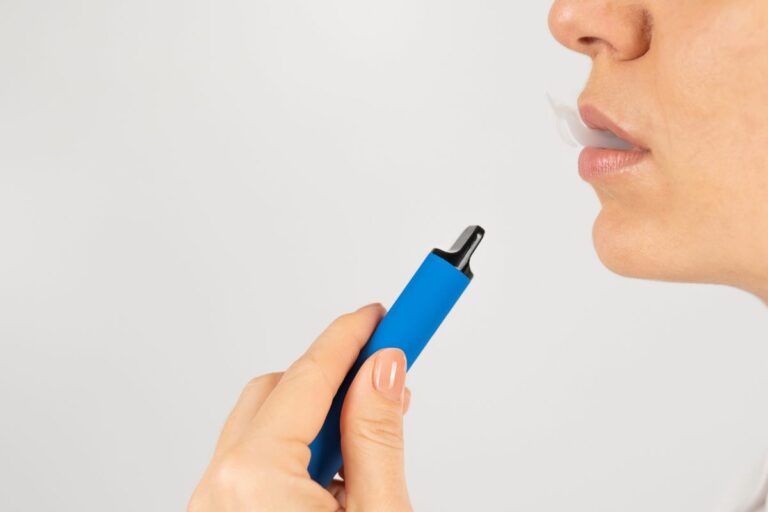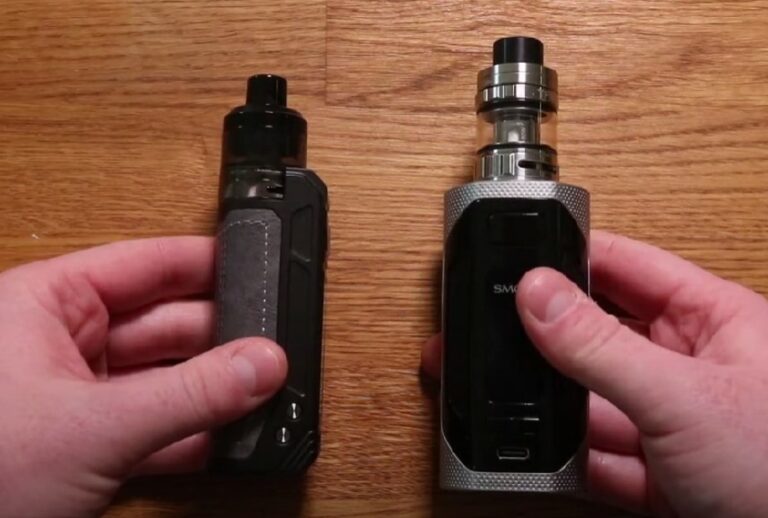Rhode Island Vape Laws: A Concise Overview for Enthusiasts
Rhode Island, like many states in the United States, has its own set of laws and regulations when it comes to vaping and electronic cigarettes. These laws aim to protect the health of residents, control access to vaping products, and regulate the sale and use of vape devices and e-liquids within the state’s borders. It is important for both users and retailers to be aware of these laws in order to comply with them, avoid fines, and ultimately promote responsible vaping practices.
In recent times, there has been a focus on addressing the surge in youth vaping and preventing access to vaping products for underage individuals, leading to the introduction of age restrictions and retail regulations. In addition, statewide comprehensive smoke-free indoor air laws also impact vaping behaviors and the use of electronic cigarettes in public places, hence aiming to protect non-smokers from secondhand exposure.
Table of Contents
Key Takeaways
- Rhode Island’s vape laws regulate the sale and use of vaping products, with a focus on preventing youth access.
- Age restrictions and retail regulations are in place to control the availability of vape devices and e-liquids.
- Statewide smoke-free indoor air laws impact vaping behaviors in public places, aiming to protect non-smokers.
NEW CUSTOMER DISCOUNT
Save 15%
15% OFF YOUR ENTIRE ORDER FOR NEW CUSTOMERS USE CODE WELCOME15!
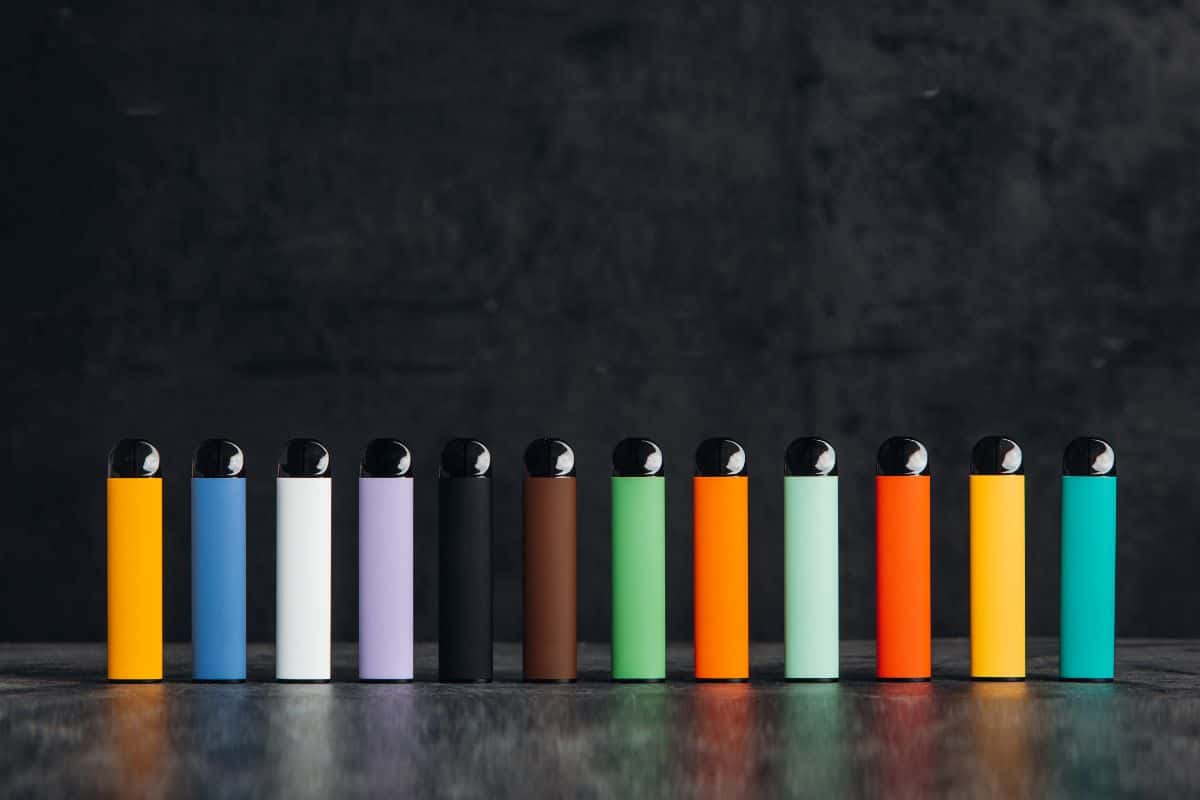
Rhode Island Vape Legislation
In recent years, Rhode Island has implemented several vape-related laws with the aim of protecting public health and preventing youth access to e-cigarettes. These laws were proposed and passed by the Rhode Island state government, including the State House, which is responsible for legislation and regulation within the state.
One key piece of legislation is the ban on flavored e-cigarettes. This ban was enacted in response to the growing concern of youth vaping and the appeal of flavors, which could attract young users. Rhode Island has been successful in reducing the prevalence of youth e-cigarette smoking through this and other measures, such as tobacco control programs and policies focused on point of sale regulations1.
In addition to the flavored vape ban, regulations in Rhode Island establish a minimum age for the purchase and use of e-cigarettes. As of 2018, individuals must be at least 18 years old to buy and use vaping products in Rhode Island2. This age requirement aligns with federal standards set by the Tobacco 21 law, which raised the nationwide minimum age for purchasing tobacco products, including e-cigarettes, from 18 to 21 in December 20193.
Furthermore, Rhode Island has taken steps to regulate the sale of e-cigarettes within its borders. All retailers selling e-cigarettes must obtain a retail tobacco sales permit from the state’s Department of Health, which also outlines specific packaging and labeling requirements for e-cigarette products4. These measures ensure standardized information and warnings regarding the potential risks and safety hazards of vaping products sold in Rhode Island.

Age Restrictions
In Rhode Island, the minimum legal sale age (MLSA) for electronic cigarettes is 21 years old1. This age restriction aims to curb youth access to e-cigarettes and reduce the likelihood of addiction to nicotine products.
Retailers selling e-cigarettes in Rhode Island must adhere to strict regulations to avoid penalties. As part of the regulatory process, retailers must verify the age of customers before selling e-cigarettes by checking their government-issued identification1. This ensures that only individuals who meet the minimum age requirement are allowed to purchase these products.
In addition to the MLSA, Rhode Island has further measures in place to limit youth exposure to e-cigarettes. For example, self-service displays of e-cigarettes are prohibited, requiring that products be kept behind the counter or in a locked box2. This restriction is essential for reducing the likelihood of underage individuals obtaining e-cigarettes unlawfully.
It is crucial for both retailers and consumers to be aware of and abide by the age restrictions in place to protect public health. While e-cigarettes may be a viable alternative for adult smokers seeking harm reduction, they should not be accessible to youth, as it may lead to nicotine addiction and adverse health consequences.
Vaping Products and E-liquids
Vaping products in Rhode Island consist of various electronic devices, such as e-cigarettes and vaporizers, that are designed to deliver nicotine and other substances through inhalation. These products typically use e-liquids, which contain a base mixture of propylene glycol or vegetable glycerin, often combined with flavors and varying levels of nicotine. Flavored and menthol e-liquids are popular among consumers and have seen fluctuating sales trends in the United States between 2012 and 20161.
Nicotine levels in e-liquids can vary significantly based on the product and the user’s preference, ranging from 0 mg/mL to over 50 mg/mL. It is essential to note that the safety and regulation of e-liquids and their components are still being examined. Some studies have been conducted on the presence of potentially toxic additives in e-liquids and electronic cigarette flavorings2.
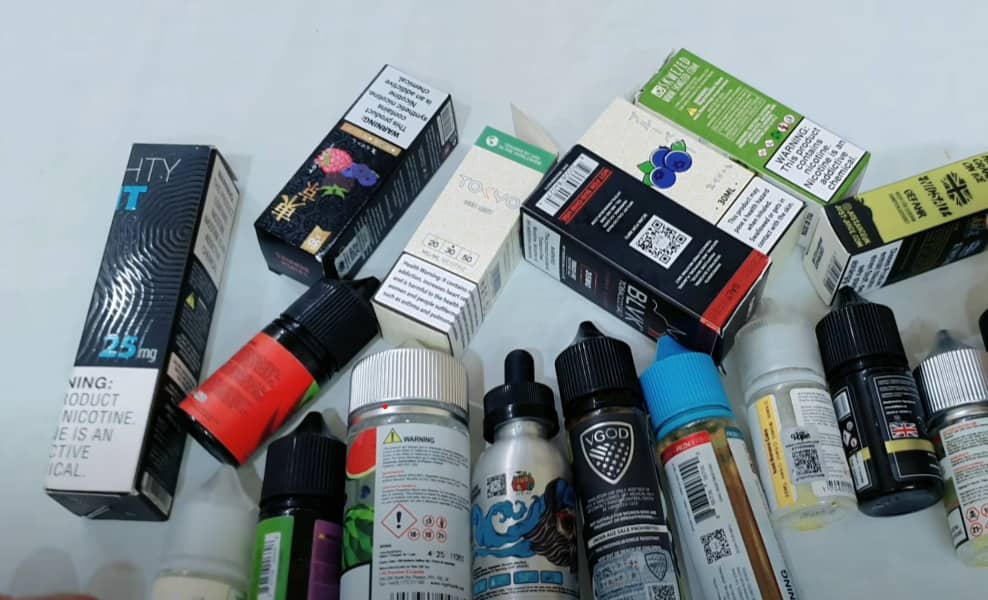
In Rhode Island, the sale of e-cigarettes and vapor products to people under the age of 18 is strictly prohibited. Retailers are required to verify the age of customers before selling any electronic nicotine-delivery system3. Moreover, Rhode Island has implemented regulations on the sale, taxation, and licensing of electronic nicotine-delivery system products to ensure public health and safety.
While vaping products and e-liquids are widely available through online retailers and vape shops, responsible use and awareness of the potential risks should be the priority of every user. With ongoing research and regulatory changes, it is crucial to stay informed and make decisions that prioritize the health and well-being of both individual users and the community as a whole.
Retail Regulations
In Rhode Island, retail regulations play a crucial role in controlling the sale and distribution of electronic cigarettes and related products. Retailers are required to obtain a retail license to legally operate and sell electronic cigarettes. This license serves as a measure to ensure that only authorized and regulated businesses are selling vape products.
The state has implemented a series of restrictions and guidelines to ensure compliance with these regulations. For instance, Rhode Island has enacted self-service display restrictions for electronic cigarettes, which are aimed at preventing underage minors from accessing these products easily.
Retail License and Permit Requirements: To obtain a retail license in Rhode Island, vape shops and other businesses selling electronic cigarettes must meet specific criteria and provide necessary documentation as required by the state. This process ensures that businesses adhere to the regulations in place and maintain a safe and regulated environment for the distribution of vape products.
Enforcement of Regulations: Law enforcement officers in Rhode Island actively monitor compliance with these retail regulations. In Providence, for example, local law enforcement has demonstrated success in enforcing a ban on price discounts related to the sale of tobacco products. This contributes to the overall effectiveness of retail regulations in controlling the distribution and sale of electronic cigarettes.
It is essential for vape retailers in Rhode Island to be fully aware of and comply with all retail regulations and restrictions set in place. By doing so, they contribute to the state’s efforts in controlling the distribution of vape products, reducing underage access, and promoting a safe and responsible environment for consumers.

Vaping and Tobacco Use in Public Places
In Rhode Island, regulations surrounding vaping and tobacco use in public places have been implemented to protect the health and well-being of residents and visitors. State law prohibits the use of electronic cigarettes and other vaping devices in indoor public spaces, similar to restrictions placed on traditional tobacco smoking.
This ban on e-cigarette use in public places extends to common areas of multi-unit housing, such as lobbies, hallways, laundry rooms, and shared recreational facilities. By including e-cigarettes in the same category as tobacco products, Rhode Island aims to discourage the use of these devices and promote a smoke-free environment.
In addition to indoor public spaces, certain outdoor public areas may also have restrictions on vaping and tobacco use. For instance, smoking and vaping may be prohibited in outdoor spaces near building entrances, windows, or air intakes to minimize exposure to secondhand smoke and vapor.
Rhode Island’s strict stance on vaping and tobacco use in public places is supported by the knowledge that e-cigarette aerosol is not harmless water vapor, but contains potentially harmful substances. By implementing these regulations, the state is actively working towards reducing the public’s exposure to the harmful effects of both traditional cigarette smoke and e-cigarette vapor.
As a visitor or resident in Rhode Island, it is important to be aware of these rules and regulations and to respect the desire for maintaining clean air in public spaces. By doing so, we contribute to a healthier, more comfortable, and enjoyable environment for all.

Health Implications of Vaping
Vaping has become a popular alternative to smoking traditional tobacco products, but it also comes with its own set of health concerns. Research shows that e-cigarettes may contain harmful chemicals, putting children, adolescents, and adults at risk for various health issues.
One of the key factors contributing to the popularity of e-cigarettes, especially among younger populations, is the wide variety of flavored options available. However, flavored e-cigarettes have been linked to several health risks, including nicotine addiction. Rhode Island implemented emergency regulations to prohibit flavored e-cigarette sales in an attempt to curb nicotine use among youths.
Nicotine addiction is a serious concern, as it can lead to an increased risk of using other tobacco products in the future. Exposure to nicotine during adolescence can lead to impaired brain development, affecting cognitive function and increasing the susceptibility to addiction later in life.
Another health concern associated with vaping is the potential for lung injuries. E-cigarette aerosol is found to contain harmful chemicals and particulate matter, which can be detrimental to lung health. This puts e-cigarette users at a higher risk for respiratory issues compared to those not exposed to e-cigarette aerosol.
In addition to individual health risks, there are also public health concerns associated with vaping. Secondhand exposure to e-cigarette aerosol has been shown to carry potential health risks, similar to secondhand smoke from traditional tobacco products. This has prompted states like Rhode Island to implement comprehensive smoke-free indoor air laws to protect not only e-cigarette users, but also those around them.
In conclusion, vaping presents several health implications that affect both individual users and the general public. Rhode Island’s implementation of emergency regulations and smoke-free indoor air laws reflect a proactive approach to addressing these concerns. However, it is crucial to continue research, awareness, and policy efforts to mitigate the health risks associated with vaping.

State and Federal Laws
In recent years, there has been an increased focus on regulating e-cigarettes and vaping products by both state and federal authorities. The federal law known as the Deeming Rule gave the Food and Drug Administration (FDA) the authority to regulate e-cigarettes and other vaping products in the same way as traditional tobacco products. This rule sets national minimum standards but does not prevent individual states from enacting stricter regulations.
Massachusetts has implemented statewide restrictions on flavored e-cigarette sales. A study evaluating the impact of these restrictions found a decrease in sales of flavored e-cigarettes in the state after the implementation of the law, compared to control states, which did not have such restrictions (source). New York and Washington have also implemented similar restrictions on flavored e-cigarettes.
In Rhode Island, the city of Providence advanced tobacco control through point of sale policies, which included regulations on e-cigarettes (source). While there is no specific current information on Delta-8 THC regulations in Rhode Island, the Rhode Island Code of Federal Regulations states certain conditions for its legality, which can be found here.
Several other states have introduced varying degrees of regulations on e-cigarette sales and usage. For example:
- California: Banned flavored e-cigarettes and set strict age restrictions for their purchase.
- Illinois: Banned the sale and distribution of flavored vape products.
- Indiana: Set tax rates and safety requirements on vaping products.
- Michigan: Established an age limit of 21 for the purchase of vape products.
- Montana: Banned flavored e-cigarettes and set stricter licensing requirements for retailers.
- Nebraska: Prohibited the sale of vaping products to anyone under 18 years old.
- New Hampshire: Implemented an excise tax on e-cigarettes and age restrictions for their purchase.
- Ohio: Established an age limit of 21 for purchasing e-cigarettes and restricted online sales.
This is not an exhaustive list, but it demonstrates that state and federal laws regarding e-cigarettes and vaping products are extensive and evolving. It is important for retailers and consumers to remain aware of the regulations in their respective jurisdictions to ensure compliance.
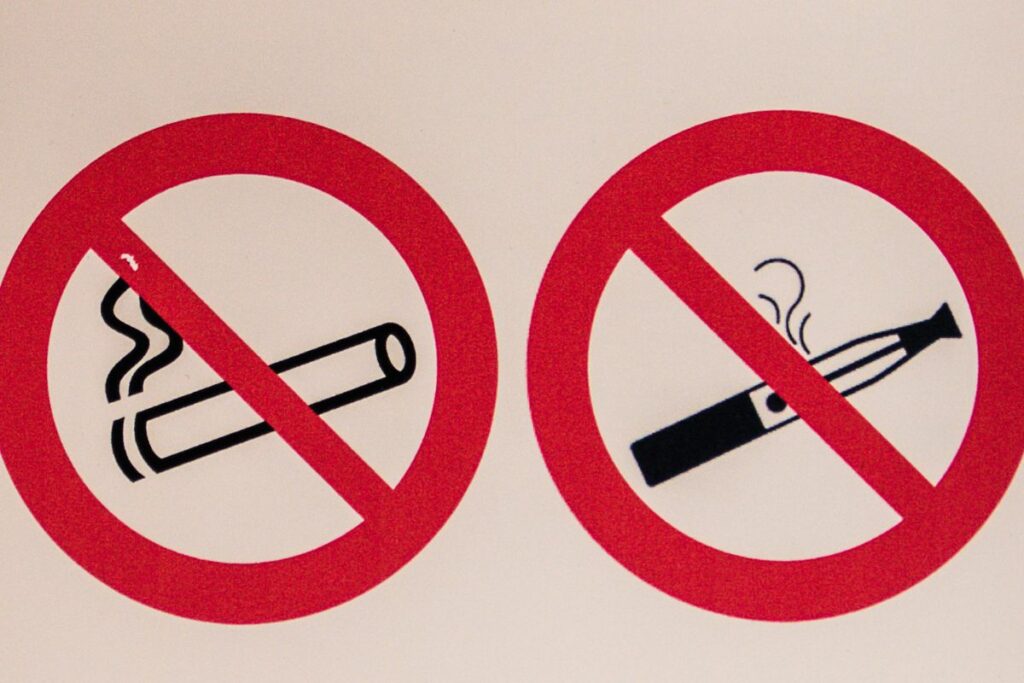
Enforcement and Fines
In Rhode Island, the enforcement of vape laws has been a priority for maintaining safety and compliance. In order to ensure that retailers meet the required regulations and avoid putting people at risk, the state has implemented a system of penalties for violations of these laws.
One such example of this enforcement effort is Providence’s flavored tobacco control policy, which has helped reduce the prevalence of e-cigarettes among high school students in Rhode Island. Rigorous enforcement and penalties assessed for violations have provided a funding stream for the state’s tobacco control programs source.
Fines for non-compliance can be substantial, with stores being subject to financial penalties if they are found to be in violation. Importantly, penalties are not just limited to fines; mandatory counseling for employees and owners who violate the laws has also been introduced in order to educate them on the dangers of non-compliance and the importance of maintaining safety standards.
Enforcement agencies such as the board of health are authorized to promulgate rules and regulations, ensuring that retailers comply with the state’s vape laws source. These agencies also have the power to enforce penalties when violations take place. This strong and comprehensive enforcement network greatly contributes to the success of Rhode Island’s vape laws in promoting public safety.
It is also important to note that Rhode Island recognizes the importance of protecting the youth from the harms of vaping. Because of this, the state has been vigilant about enforcing vape laws in areas around schools. This effort has further helped to reduce e-cigarette use among the youth population, contributing to a safer environment for students.
In conclusion, Rhode Island’s enforcement efforts and the penalties imposed for violations of vape laws have been instrumental in ensuring a safer environment for both residents and visitors alike. The emphasis placed on safety, adherence to regulations, and mandatory counseling for violators offers a strong framework that other states could look to adopt in efforts to reduce the prevalence of e-cigarette use and protect public health.
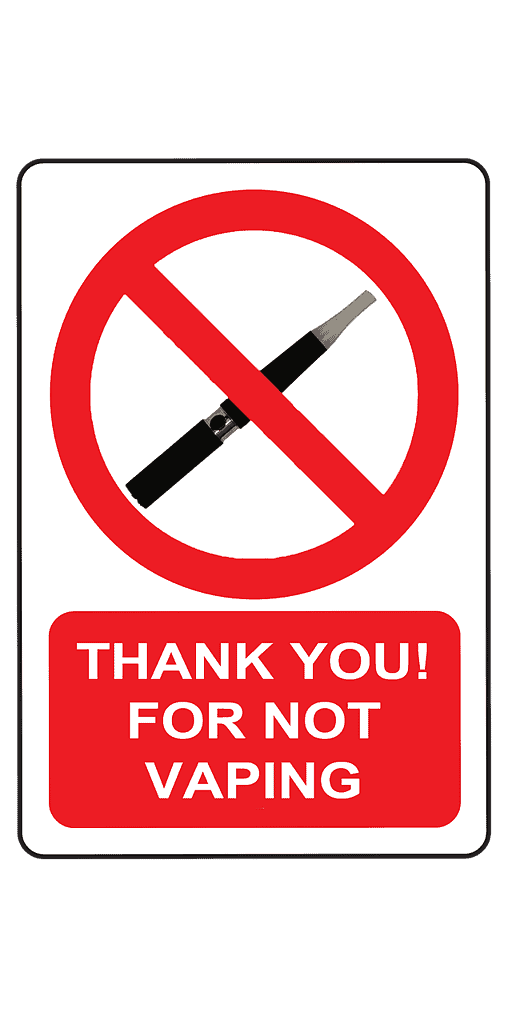
Bans and Restrictions
In Rhode Island, vaping has been a subject of concern, and the state government has implemented various bans and restrictions to control its use. One example is the statewide ban on flavored electronic nicotine delivery systems (ENDS), which aims to curb the appeal of these products to young people. Following the 2019 restrictions in Massachusetts, Rhode Island also introduced similar rules to regulate the availability and accessibility of ENDS products1.
Rhode Island’s restrictions on flavored e-cigarettes are part of a broader effort to strengthen tobacco control programs. The prohibition of flavored ENDS is aimed at reducing initiation, especially among youth. However, it’s worth noting that bans or restrictions across different jurisdictions may have unique rules and implementation strategies1.
In addition to the flavored e-cigarette ban, Rhode Island has considered further restrictions on ENDS. Some cities and localities in the state have even enacted restrictions that are specific to e-cigarettes, including limitations on the type of flavors allowed5. Menthol, a popular flavor among users, is also under scrutiny as part of the widespread concerns surrounding flavored e-cigarettes.
Rhode Island’s tobacco control program is continually evolving to address emerging challenges posed by ENDS, including shaping the legal framework for tobacco and nicotine product use. The program aims to reduce tobacco-related diseases and deaths, improve public health, and protect citizens from the harmful effects of vaping and other tobacco products.
While the state’s bans and restrictions on ENDS have been a step towards managing vaping-related concerns, there is still room to assess their overall impact on the population. Stakeholders continue to monitor the changing landscape of ENDS regulation to ensure optimal public health outcomes.
Vaping and Other Substances
In recent years, the use of e-cigarettes and vaping has become increasingly popular among teenagers and young adults, presenting a significant public health concern. Rhode Island has taken steps to address the issue, implementing both emergency regulations and long-term policies to curtail the consumption of these products and their related risks.
One study exploring the relationship between e-cigarette use in Rhode Island high school students revealed that there is a connection between e-cigarette use and the eventual use of other substances such as marijuana and tobacco. This is particularly concerning for teens and young adults, since early exposure to nicotine can increase the likelihood of developing a dependence on addictive substances later in life.
Addressing the prevalence of e-cigarettes and their transition to other substances, Rhode Island has implemented various policies, including restricting the sale of flavored e-cigarettes and increasing the minimum legal sale age for tobacco products to 21. These efforts are important as early interventions have been proven to reduce the risk of young people becoming addicted to nicotine and carrying this habit into adulthood.
Furthermore, Rhode Island has shown interest in promoting a tobacco-free generation through integrated behavioral healthcare. By providing comprehensive support that addresses the mental, emotional, and social aspects of addiction, healthcare providers can help adolescents and young adults avoid both e-cigarettes and other addictive substances like marijuana and tobacco.
Overall, it is crucial to continue the conversation on vaping and its connection to other substances in Rhode Island. By implementing effective policies and offering robust support services, the state aims to reduce the risks associated with e-cigarettes and protect the health and well-being of its young population.

Support Systems and Resources
When it comes to vaping laws and regulations in Rhode Island, several organizations and support systems are in place to help with the enforcement and management of these policies, as well as assist individuals in making informed decisions.
The Rhode Island Department of Health plays a crucial role in regulating and monitoring tobacco and e-cigarette sales in the state. To ensure the safety of the public, they have been actively involved in passing and enforcing various point of sale policies to advance tobacco control in Rhode Island, helping to reduce e-cigarette use among the youth population1.
CVS Health is another significant contributor to tobacco control efforts in Rhode Island. As a major provider of healthcare and pharmacy services, they have demonstrated their commitment to public health by ceasing all sales of tobacco products in their stores since 2014. This strategic decision aligns with their mission to prioritize and improve community health.
The Rhode Island Nicotine Helpline is an essential resource for individuals seeking support for quitting tobacco and e-cigarette use. It offers confidential, free, and qualified assistance by connecting callers with trained professionals who can provide guidance, counseling, and information on nicotine replacement therapies.
Both the Centers for Disease Control and Prevention (CDC) and the Food and Drug Administration (FDA) play influential roles in shaping the national e-cigarette policy landscape. Their research and guidelines serve as a foundation for state-level policies, helping places like Rhode Island develop and implement effective regulations to protect public health2.
Lastly, Tobacco Free Rhode Island is a local organization that works towards reducing the prevalence of tobacco use and exposure to secondhand smoke within the state. They offer resources and educational programs to teach the public about the dangers of tobacco and e-cigarettes, while advocating for stronger policies to contribute to a healthier, smoke-free Rhode Island.
Recent Updates to Vape Laws
In recent years, there have been significant updates to the vape laws in Rhode Island and nearby states. In September 2019, Rhode Island Governor Gina Raimondo issued an executive order to ban the sale of flavored e-cigarettes, joining other states such as New York, Massachusetts, and Washington in efforts to curb vape use among young people. This ban took effect in October 2019 and was later expanded to include a permanent set of regulations.
Besides Rhode Island, Massachusetts has also been proactive in controlling e-cigarette use. In November 2019, Gov. Charlie Baker signed into law a bill banning all flavored tobacco and vaping products, including menthol cigarettes. Massachusetts became the first state to implement a comprehensive ban on flavors as a response to the increasing public health concerns surrounding vaping.
New Jersey followed suit in January 2020, when it became the third state after Massachusetts and Rhode Island to enact legislation prohibiting the sale of flavored e-cigarettes. The state’s governor, Phil Murphy, signed the bill that imposed restrictions not only on e-cigarettes but also on other vaping devices and menthol cigarettes.
It is essential to note that these changes in vape laws have been enforced due to the significant rise in youth vaping and associated health risks. State governments are taking action to protect their citizens, particularly young people, from the potential dangers of e-cigarette use.
As vape laws continue to evolve, it will be crucial for users and retailers to stay updated on the regulations in their respective states. These recent updates highlight the importance of understanding and complying with the vaping laws set out by various state governments to ensure public health and safety.
Browse popular vape collections:
- Nicotine Disposables
- 2000 Puff Nicotine Disposable Vapes
- 2500 Puff Nicotine Disposable Vapes
- 5000 Puff Nicotine Disposable Vapes
- 6000 Puff Disposable Nicotine Vapes
- 7000 Puff Nicotine Disposable Vapes
- Disposable Vape Deals
- Best Vape Brands
- 8000 Puff Nicotine Disposable Vapes
- 9000 Puff Nicotine Disposable Vapes
- 5% Nicotine Disposable Vapes
- Rechargeable Nicotine Disposable Vapes
- Vape Coils
- Dab Wax Pens
- Dab Wax Pen Battery
- Yocan Vapes
- Vape Cases
Frequently Asked Questions
Are disposable vapes allowed in Rhode Island?
Yes, disposable vapes are allowed in Rhode Island. There are no specific laws prohibiting the sale or use of disposable vape products in the state.
What is the legal age to purchase vape products in Rhode Island?
The legal age to purchase vape products in Rhode Island is 21 years old. This age restriction applies to all tobacco and vape products, including e-cigarettes and vaping devices.
Is flavored nicotine permitted in Rhode Island?
No, flavored nicotine products are not permitted in Rhode Island. The state has implemented restrictions on the sale of flavored e-cigarette products in an effort to reduce youth vaping rates. These restrictions can be found in this article.
Are there any restrictions on vape shops in Rhode Island?
Yes, there are restrictions on vape shops in Rhode Island. Vape shops are required to obtain a tobacco sales license, and they must follow local zoning regulations and other applicable laws.
What is the status of the vape ban in Rhode Island?
Rhode Island has implemented a ban on flavored e-cigarette products, as mentioned above. However, the state has not banned vaping altogether. Vape products and devices, other than flavored e-cigarettes, can still be sold and used in Rhode Island.
How do Rhode Island’s vape laws compare to nearby states?
Rhode Island has similar vape laws to some nearby states, such as Massachusetts and New York, which also have restrictions on flavored e-cigarette products. However, each state has its own unique set of regulations, so it is important to be familiar with the specific laws in each state when comparing Rhode Island’s vape laws to those of its neighbors.
Footnotes
- https://www.ncbi.nlm.nih.gov/pmc/articles/PMC6795063/ ↩ ↩2 ↩3 ↩4 ↩5 ↩6 ↩7
- https://link.springer.com/article/10.1007/s40429-020-00332-w ↩ ↩2 ↩3 ↩4
- https://www.fda.gov/tobacco-products/retail-sales-tobacco-products/selling-tobacco-products-retail-stores ↩ ↩2
- http://webserver.rilin.state.ri.us/Statutes/TITLE23/23-1/23-1-56.HTM ↩
https://tobaccocontrol.bmj.com/content/32/e1/e134.abstract ↩
- https://en.wikipedia.org/wiki/Electronic_cigarette
- https://www.hopkinsmedicine.org/health/wellness-and-prevention/5-truths-you-need-to-know-about-vaping
- https://www.cdc.gov/tobacco/basic_information/e-cigarettes/pdfs/ecigarette-or-vaping-products-visual-dictionary-508.pdf
- https://www.forbes.com/health/body/health-effects-e-cigarettes/?_ga=2.21817723.1724371659.1681286262-1699932226.1672148734



